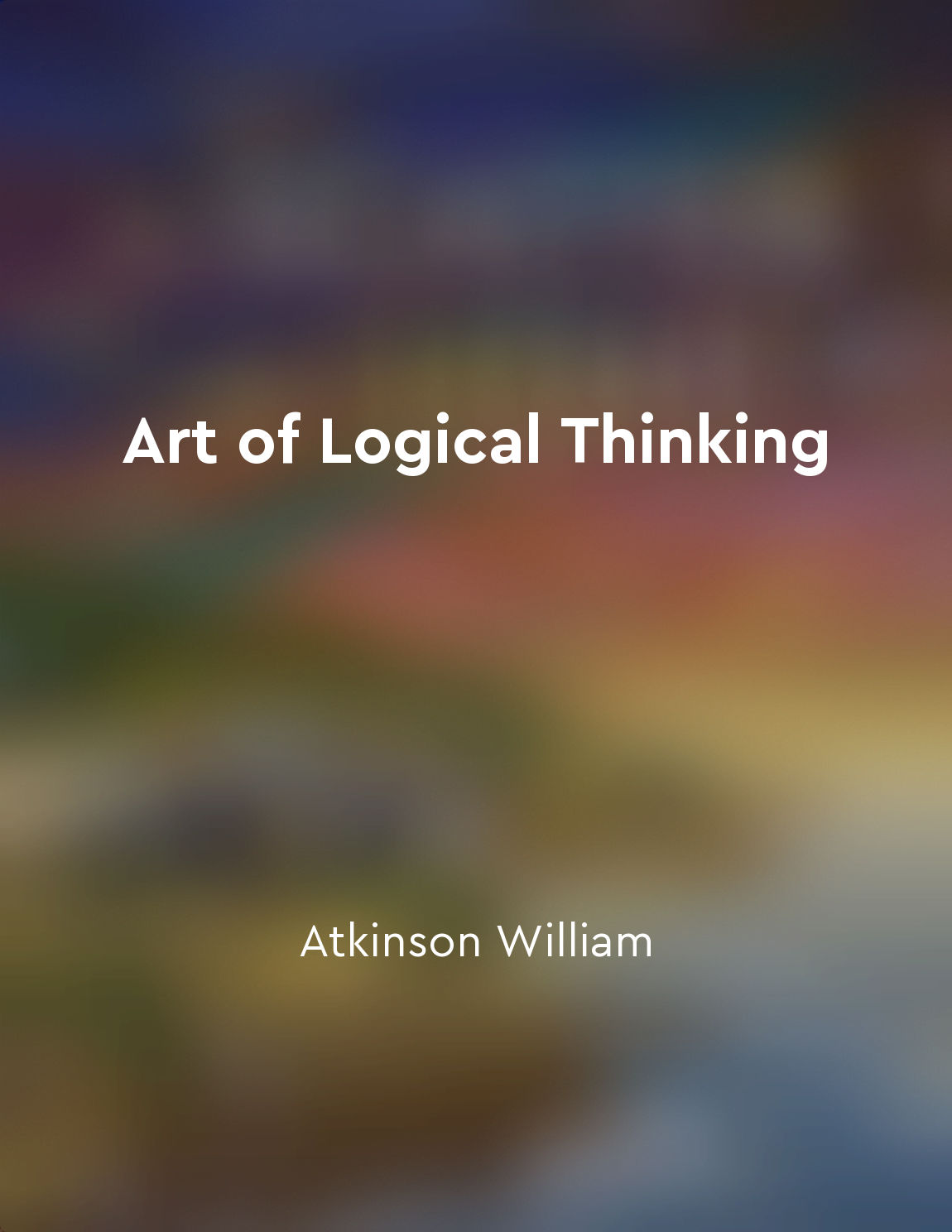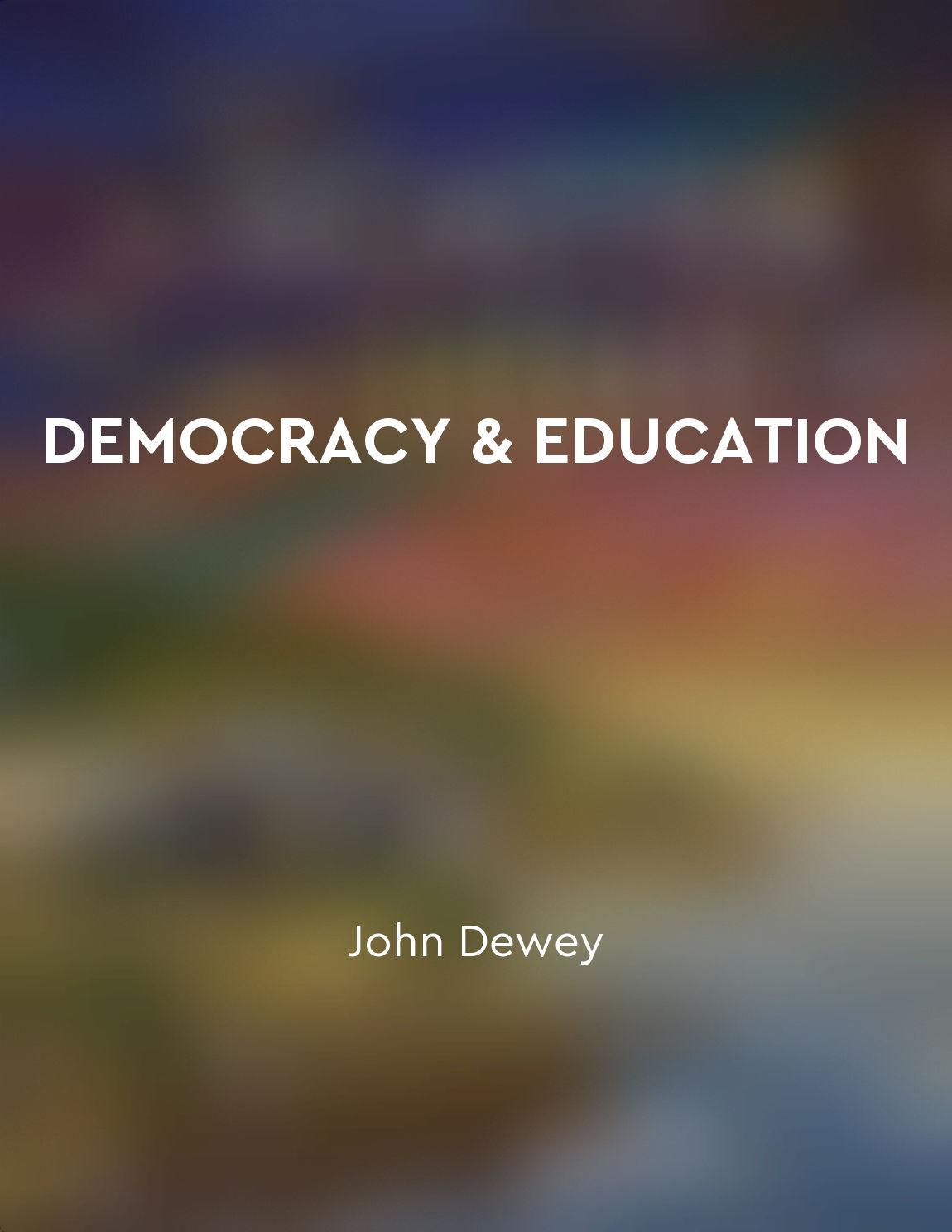Popper emphasizes the importance of critical thinking from "summary" of The Poverty of Historicism by Karl Popper
Popper's work underscores the significance of engaging in critical thinking as a means to evaluate and challenge ideas. The process of critical thinking involves carefully examining arguments and evidence with a skeptical eye, striving to uncover weaknesses and inconsistencies. This approach is crucial in distinguishing between valid and invalid claims, enabling individuals to make informed judgments based on reason rather than blindly accepting information at face value. By promoting critical thinking, Popper encourages individuals to question prevailing beliefs and ideologies, recognizing that this intellectual rigor is essential for intellectual growth and the advancement of knowledge. Critical thinking serves as a defense against dogmatism and ideological conformity, fostering intellectual humility and openness to new perspectives. It allows for the continual reassessment of ideas in light of new evidence and arguments, leading to a more nuanced and sophisticated understanding of complex issues. Moreover, critical thinking empowers individuals to resist the allure of simplistic explanations and grand narratives that purport to predict the course of history or society. Popper argues that such deterministic modes of thinking are inherently flawed, as they overlook the inherent complexity and unpredictability of human behavior and historical events. By honing their critical thinking skills, individuals can guard against the seductive appeal of historicism and other forms of intellectual hubris that claim to possess a privileged insight into the future.- Critical thinking serves as a safeguard against intellectual complacency and ideological certainty, pushing individuals to constantly question and refine their beliefs in light of new information and perspectives. Popper's emphasis on critical thinking challenges individuals to confront the limitations of their own knowledge and biases, fostering a more intellectually robust and intellectually honest approach to engaging with the world. Ultimately, by cultivating a habit of critical thinking, individuals can become more discerning and reflective thinkers, capable of navigating the complexities of the world with greater clarity and insight.
Similar Posts

Reflecting on past decisions can reveal cognitive biases
When we look back on past decisions we have made, we may uncover certain patterns or tendencies that influenced our choices. Th...

Analogical reasoning compares similarities
Analogical reasoning is a method of comparing similarities between two things in order to draw a conclusion about one based on ...
Yale should embrace a more balanced approach to education
Yale's current approach to education is heavily skewed towards promoting a particular ideology, rather than fostering a balance...

Curriculum should promote civic engagement
The purpose of education is not simply to transmit knowledge, but to cultivate the habits and dispositions necessary for active...
Knowledge fuels personal growth and development
Knowledge is the key that unlocks the door to personal growth and development. It is the fuel that propels individuals forward ...
We must resist authoritarianism and tyranny
To confront authoritarianism and tyranny is a moral and political imperative in any democratic society. These forces seek to cr...
Critical thinking enhances problemsolving abilities
In order to effectively solve problems, individuals must be able to think critically about the situation at hand. Critical thin...
Learn to control your impulses
Impulses are like wild horses, ready to gallop away at the slightest provocation. They can lead us to make hasty decisions with...

